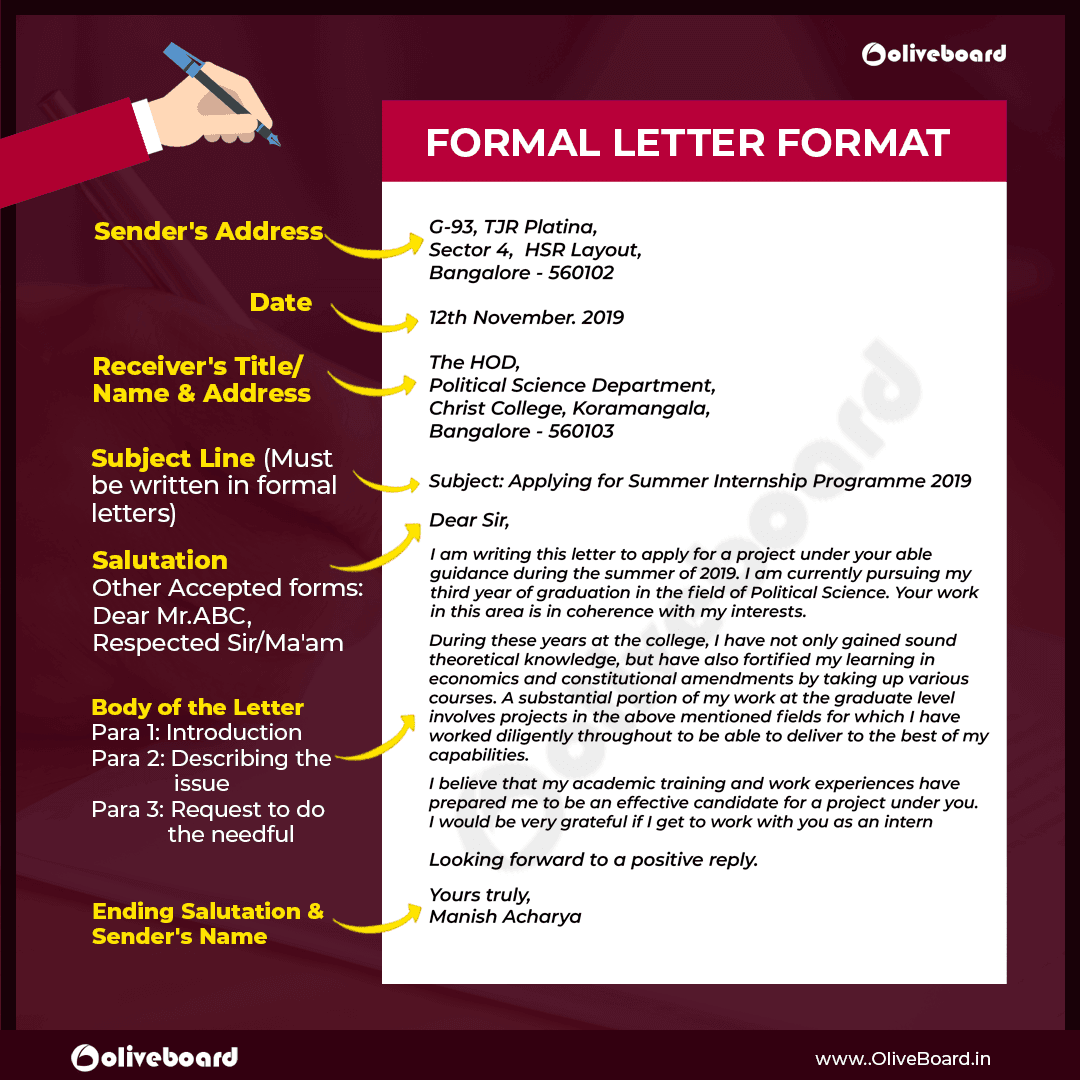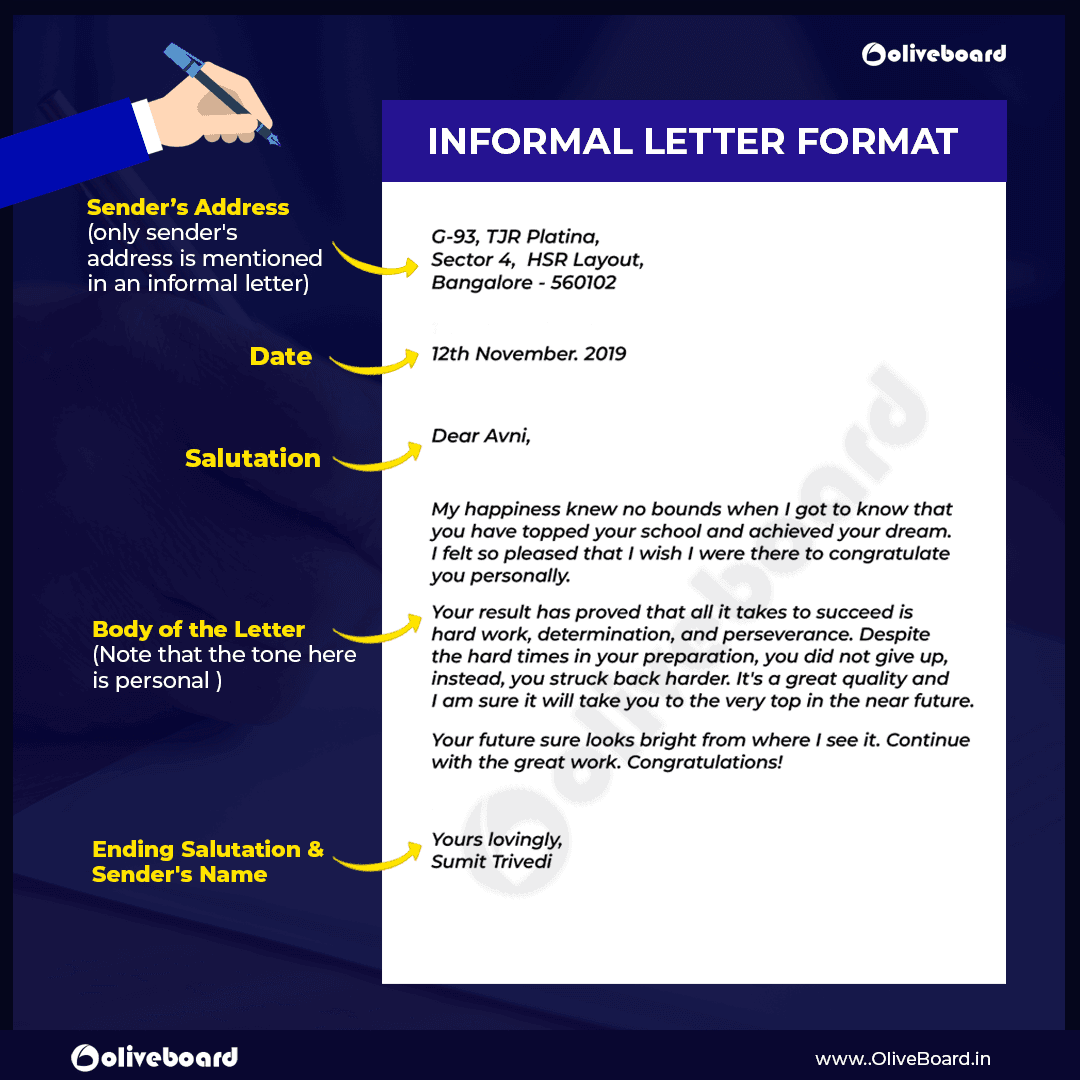Descriptive Writing For Bank Exam
Descriptive Writing For Bank Exams: In almost every banking related exam, the mains exam consist of descriptive writing. Descriptive Writing which comprises – one Letter Writing and one Essay Writing which makes a total of 25 marks in most of the exams such as NABARD, RBI, IBPS PO, SBI PO, NIACL etc. The marks that you get in the descriptive section are added to the marks to calculate the overall mains cut-off marks. So, it is very important to have a good idea about Descriptive writing.
In this blog, Descriptive Writing For Bank Exams we will provide you with some of the important topics, types, and formats for Letter writing. Do remember that in the exam, you will have to type the Essay and Letter using the computer keyboard. So it is advisable to practice them online.
Descriptive English For Bank Exams – Types of Letter Writing
There are mainly two types of letters asked in exams:
- Formal Letter
- Informal Letter
FORMAL LETTER
- Written in official and non-personal capacity.
- Written to authorities, dignitaries, bureaucratic bodies, news editors, bank managers, etc.
INFORMAL LETTER
- Personal Letter
- Written to personal contacts, family, friends, relatives, siblings, etc.
Descriptive Writing For Bank Exams – Topics For Letter Writing
Below are some important and latest topics that you can practice writing upon for your different Bank Exam descriptive writing part.
Formal Letter Topics-
- Write a letter to the branch manager of your bank to conduct a campaign in your area to create awareness about the benefits of KYC.
- Write a letter to the Superintendent of Police of your district suggesting steps to make the police department more approachable.
- Write a letter to the editor of a local newspaper detailing the losses suffered by local retailers during online sales during festivals.
- Write a letter to the editor of a local newspaper about the stray animal problem getting out of hand in your locality.
- Complaint letter about hassle faced by common people due to demonetization.
- Complaint letter about increasing noise pollution.
- Complaint letter concerning the chaotic state of traffic.
- Letter to Bank Manager to reissue your ATM Card.
- Letter expressing your views on corruption in this country.
- Request letter for greater frequency of Public Transport (Bus Service) in your area.
Informal letters topics-
- Letter to your younger sibling, stating the importance of a healthy diet and the reasons for avoiding junk food.
- Write a letter to your younger sibling, who has recently started working, to not take too much stress at work.
- Write a letter to your younger sibling about the recent changes in traffic rules and fines, advising him/her to be cautious
- Letter to your favorite novelist about his/her recent novel.
- Letter to your sister congratulating her on her promotion.
- Letter to your friend who is depressed.
- Letter to your parents advising them to invest in mutual funds.
- Letter to invite your friend to your brother’s wedding.
- Letter to convince your friend to take better care of her health.
Descriptive Writing For Bank Exams – Common Tips On Letter Writing
- Word limit – 150 words.
- Correct format and salutation (different for both).
- Take care of grammar, spelling, punctuation, and indentation.
- Every part carries equal weightage.
- 3 paragraphs – an introductory paragraph, a body, and a concluding paragraph.
- Try not to go beyond a single paragraph for the body.
- A letter must never be written in points.
- Use simple and straightforward sentences.
- The letter should have a flow, clearly mentioning the purpose of writing.
- Do not use jargon, slang, or abbreviations.
Descriptive Writing For Bank Exams – Formal Letter Format

- Use a comma after every line of address.
- Salutation should be “Dear Ma’am/ Sir”.
- Subject can be placed AFTER or BEFORE salutation.
- Addresses of both sender and receiver must be mentioned in a formal letter.
- Sender address> Receiver address > Salutation.
- The introduction must mention the issue.
- The body should describe the issue.
- The conclusion must quote the steps that can be taken/ expectations/ timelines, etc.
- The statements must be very direct and written in a formal command and sentence structure. Use active voice preferably.
Descriptive Writing For Bank Exams – Informal Letter Format

- Address of only the sender should be mentioned in an informal letter.
- Use comma after every line of address.
- Salutation should be “Dear name of the friend/ family”.
- The introduction should have greetings and mention the reason for writing the letter.
- The body should give descriptions of the same.
- The conclusions must end with well wishes, etc.
- Be polite and do not form long sentences and be extra careful of the word limit.
Tips for letter writing:
- Candidates must be able to identify the type of letter they will write. Eg, writing a letter to the Principal asking for leave is a formal letter, but writing a letter to the Principal to catch up after a long time would be an informal letter.
- In formal letters, clearing the purpose of the letter immediately is very important.
- Polite words and civil language should be used while writing a letter.
- The letter should be precise and to the point.
- The opening and closing format should be correct.
How are letters and essays evaluated?
Although there is no set criteria according to which the descriptive section paper is evaluated, there are some common things that are examined by the evaluator. For most banking exams, the descriptive section is evaluated manually.
Content: The examiner would see whether aspects of the topic have been addressed in the essay and if provided details, examples and explanations are appropriately supporting the candidate’s point of view.
Formal Requirement: As the paper is descriptive in nature there are certain requirements that must be fulfilled by the answers. For letters, the format must be strictly adhered to. Although extra marks might not be awarded for the format/ structure, an absence of it might cause a reduction in your marks. For letter writing, stick to the prescribed formats of formal and informal letters. For essays, make sure the word limit (if any) is not exceeded. Also, make sure that the essay is in paragraph form.
Development, Structure and Coherence: How well the topic has been understood and explained is the main criteria for evaluating any piece of descriptive writing. The examiner sees whether there are any examples given, what is the range of thoughts/ ideas presented and how logically they are penned down. The following might be the few things an examiner is looking for in your piece of writing:-
- Does each paragraph contain just one idea or concept?
- Does the evidence support the writer’s argument?
- Does this paper have a beginning (introduction), a middle (body), and an end (conclusion)?
Grammar: This is also a very important criterion. An essay may be logically presented, it may have a variety of ideas, but if the grammar is bad, it makes the entire essay ‘not so good’. Examiners don’t expect complex sentences. Just make sure you create correct and straightforward sentence structures and convey your thoughts effectively.
- Does this paper have proper punctuation?
- Does the author provide complete sentences?
- Does this paper have consistent verb tense, voice, and third-person usage? (essays are generally written in the third person)
Vocabulary & Spelling: Again we would like to clarify that a test taker is not expected to use “high – fi” English words. As long as you have the right word for an idea, that’s good. A simple example of this would be:
- If you want to say “very good”, say “excellent”.
Also, avoid spelling mistakes as they point to a careless attitude.
Here, we would like to mention one important thing: Time Management. Make sure you divide your time as per the weightage of the question. Since an essay has higher marks, allot more time to it.
















